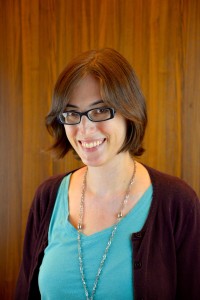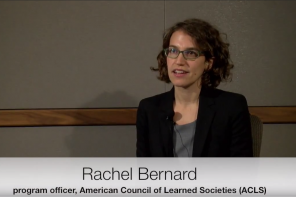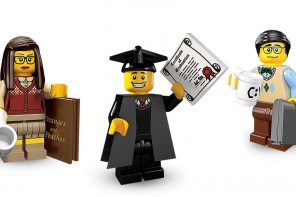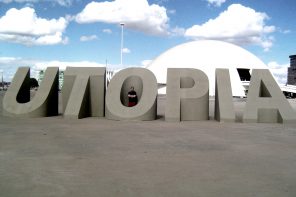By Beth Seltzer
My fellow scholars in the MLA’s Connected Academics proseminar tackle a mind-boggling range of responsibilities. They edit academic journals, serve as assistant deans and departmental administrators, lead graduate student associations, and volunteer with local youth-art programs. And they get all this done while they’re writing their dissertations and producing strong academic scholarship. I am sure that—through their work in various fields—they will make the world a better place.
Alt-ac is the term that has traditionally been applied to positions outside the professoriate. However, many of us are what I would like to call alt/ac candidates. As alt/ac candidates, we prepare for and imagine ourselves in a broad range of careers both inside and outside academia. We may be writing cover letters and drafting résumés for alt-ac jobs while also crafting our teaching and research statements for academic jobs.
This is a tricky negotiation. The proseminar spends a lot of helpful time on the question of how best to frame the PhD as a strength in an application for an alt-ac job. But there are other questions, too: How do we explain our alt-ac activities to academic job-search committees? How will our explorations of other paths read on an academic CV? The more I think about it and the more of these amazing people I meet, the more I’m convinced that graduate students with a strong alt-ac plan are exactly the sorts of colleagues you want to hire in your departments. (Always assuming, of course, that a great nonprofit or library hasn’t swooped them up already!)
Here’s why:
We already know how to balance administrative responsibilities with research. The typical academic job recipe of “scholarship, teaching, and service” implies a balance of forces we don’t always encounter in typical graduate programs. Most of the tenured professors I know are in charge of running at least one program, center, or department in the university. They mentor students, attend meetings, and discuss finances, all while keeping up with their own scholarship and teaching. My sense is that this is the case across the board at every type of institution.
Many alt/ac candidates have administrative and leadership experience already. They often work or volunteer their time while still balancing teaching and research. Working part-time as an administrator or in a library prepares us for the sort of balance professors manage, while also giving us a broader sense of the different stakeholders in the university and how they interact than we usually get as graduate students.
We’ve acquired a more diverse skill set, which could lead to more innovative scholarship and teaching. Increasingly, our disciplines require us to be good not just at books but also at spreadsheets, online databases, and social media. Alt/ac candidates may be able to transform work experiences into creative developments in research and pedagogy. A library worker at a digital humanities center may gain new techniques for researching old novels, an aspiring instructional designer may integrate innovative online collaboration into lesson plans, and an administrator may use a professional Twitter account to connect with scholars across the world. And alt/ac candidates may have had additional experience interacting with the public and imagining their scholarship in a broader context. They may have had more diverse pedagogical experiences with a range of populations. They may, in short, have more resources to drawn on.
We’re proactive, realistic, and maybe even happier. Many academic jobs have about three hundred applicants. In many fields, fewer than a dozen jobs are advertised in a year. Having an alt-ac plan in place is the mark of a realistic, sane candidate, who is able to see the realities of a complex system and be proactive about heading off possible difficulties. Candidates with viable paths to alternative careers can also sidestep some of the grueling psychological demands of the academic job market, which is humbling and painful even to the strongest “ac” candidate. Alt/ac candidates are comparatively empowered—they can be more selective in their search and spend more time considering location and quality of life. This can only be a good thing—for the candidates themselves, for the schools that hire them, for the students they teach, and for the profession as a whole.
What activities outside academic research have made you a better scholar and teacher?
 Beth Seltzer defended her dissertation on Victorian detective fiction in June 2015 at Temple University. She has worked as a project manager at the Early Novels Database, a research assistant at Paley Library’s Digital Scholarship Center, and a program assistant in Temple’s First Year Writing Program. She has been amazed by the sharp minds and strong work ethics of the graduate students she has encountered, and she wants them all to find fulfilling careers—on, alongside, or apart from the traditional path. She looks forward to thinking through alternative models for graduate study, exploring online learning and digital scholarship, and brainstorming extravagant plans for a better academy.
Beth Seltzer defended her dissertation on Victorian detective fiction in June 2015 at Temple University. She has worked as a project manager at the Early Novels Database, a research assistant at Paley Library’s Digital Scholarship Center, and a program assistant in Temple’s First Year Writing Program. She has been amazed by the sharp minds and strong work ethics of the graduate students she has encountered, and she wants them all to find fulfilling careers—on, alongside, or apart from the traditional path. She looks forward to thinking through alternative models for graduate study, exploring online learning and digital scholarship, and brainstorming extravagant plans for a better academy.







